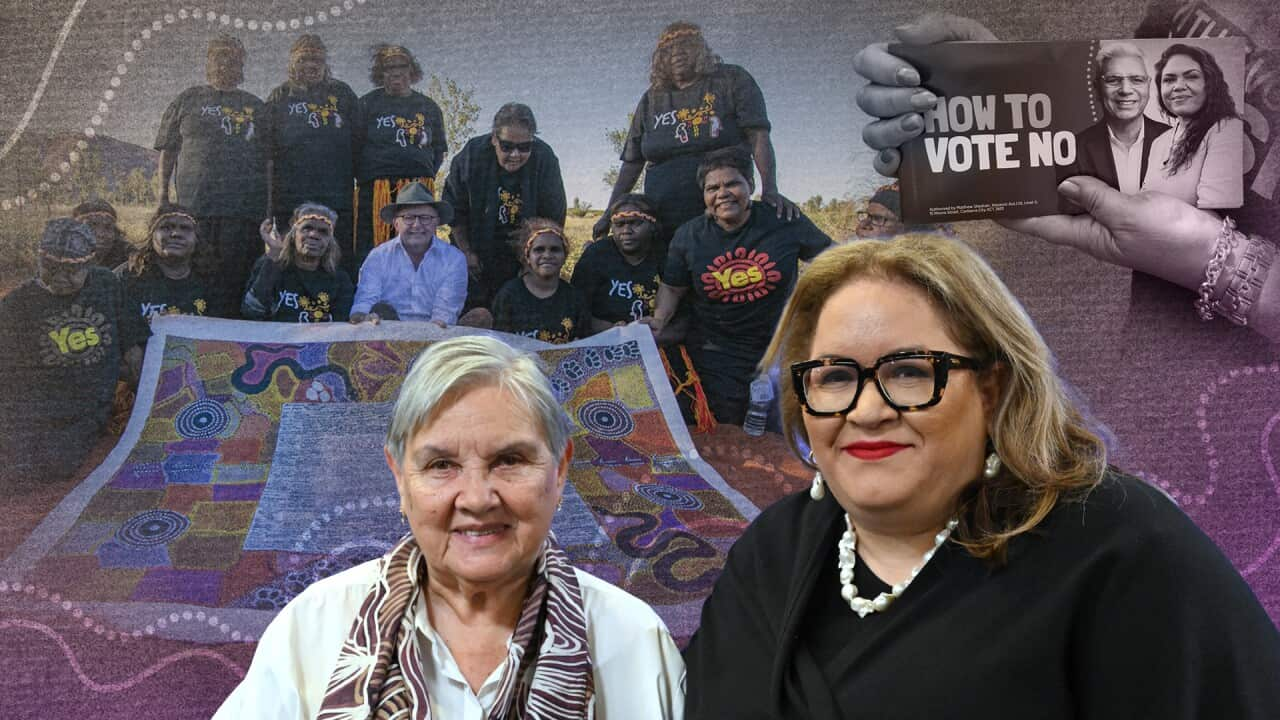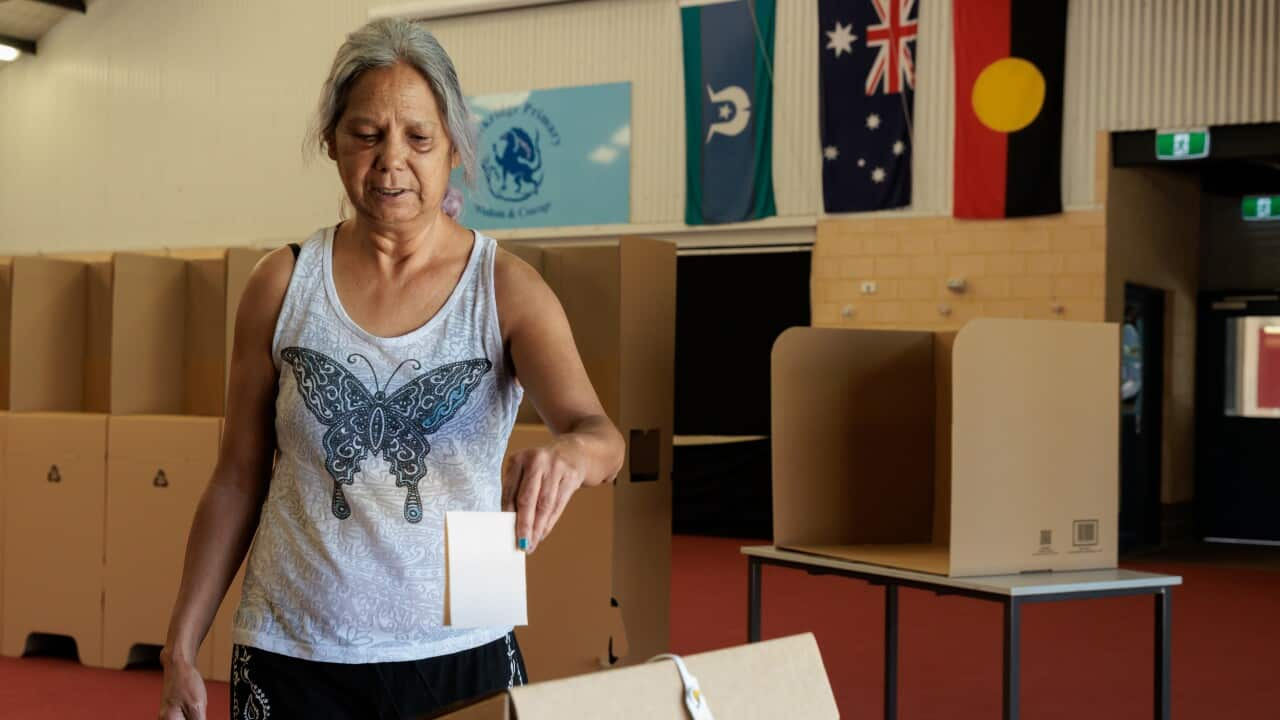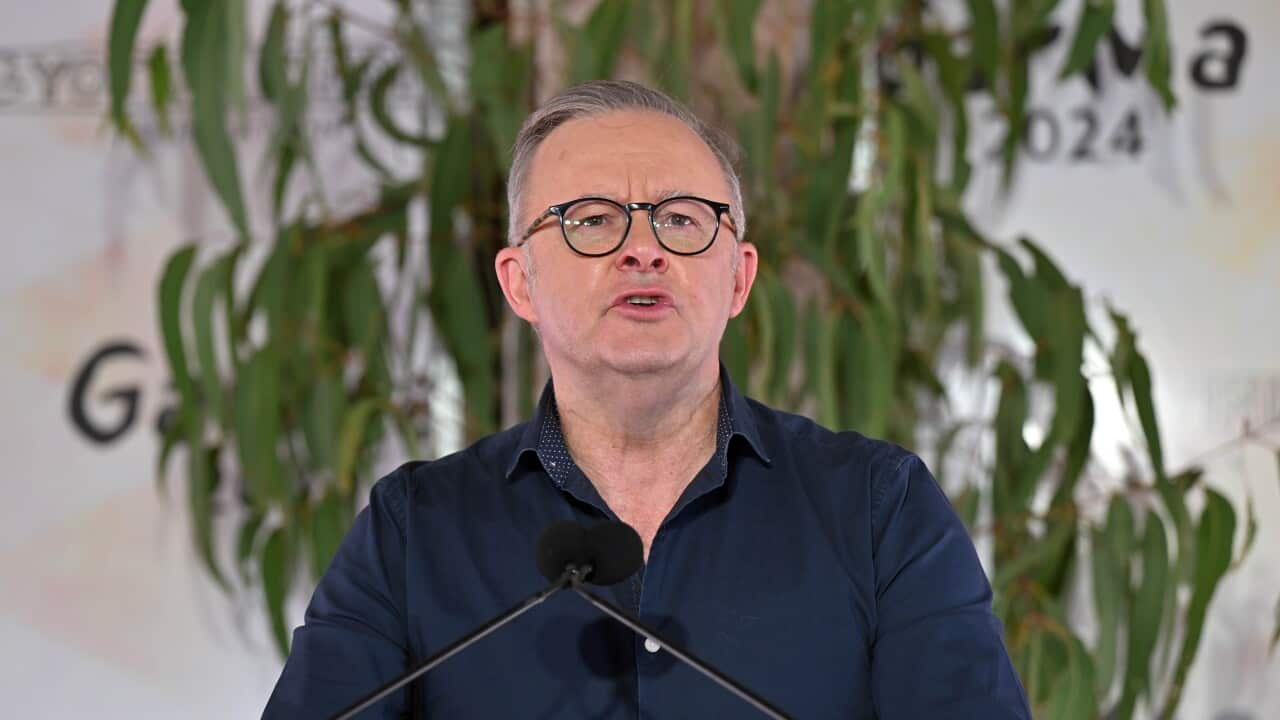

Two years on from the Voice referendum, its architects remain committed to the cause
Professor Megan Davis and Pat Anderson AO say that, much like the continued efforts for a republic referendum, the Voice's defeat at the ballot box does not mean it is going away.
Published
It's two years since Australians headed to the polls for the country's first referendum in decades.
The results were decisive, in more ways than one.
The proposal to recognise Aboriginal and Torres Strait Islander peoples in the constitution and establish a permanent First Nations advisory body, a Voice to Parliament, was rejected by every state and territory.
But a closer look at the data revealed that Indigenous communities had overwhelmingly voted in favour of the Voice.
Professor Megan Davis AC and Pat Anderson AO, architects of the Uluru Statement from the Heart, the document which formally proposed the Voice, say they remain committed to its call for action.
"The Voice is still needed. Nothing has changed," said Professor Davis, a Cobble Cobble woman and constitutional lawyer.
"This conversation needs to continue of course," agreed Ms Anderson, a luminary of the human rights movement.
"The disadvantage faced by our communities across the continent is at crisis levels."
In dismissing the notion that the referendum's result meant the end of the Voice, Professor Davis made reference to other referendum campaigns.
"Four year parliamentary terms is on the agenda, the republic is still on the agenda," she said.
"[The Voice] is not off the table, because it's what our people want."
Government silence condemned
The prime minister committed to the Uluru Statement "in full" in his election night victory in 2022.
But since the referendum, the government has been near silent on its plans for the Voice, or indeed the other pillars of the Uluru Statement, truth and treaty.
While Professor Davis praised Anthony Albanese as the only prime minister in history who had "opened the door" to the referendum, there were criticisms of the government's apparent retreat from its commitment.
Wiradjuri man Geoff Scott, appearing in a webinar along with Professor Bronwyn Fredericks to mark the anniversary, said the 6.2 million 'Yes' votes should be celebrated.
"The great silence is [that] the Labor government has moved on," he said.
"Getting them to look at it again is a challenge for us all."
"Two years on from the referendum, the silence feels heavy," Professor Davis agreed.
'We don't need another committee'
Mr Albanese has appeared at Garma Festival, the annual political summit on Yolngu Country, twice since the referendum failed.
Seen as a chance to lay out the government's agenda for Indigenous Affairs, Mr Albanese's keynote speeches have pivoted to "economic empowerment".
Federal Indigenous Australians Minister Malarndirri McCarthy recently touted the creation of an 'economic empowerment alliance', saying it "aims to support greater independence, real empowerment and lasting economic security."
But Ms Anderson criticised the government's focus.
"All these committees being set up by the government: it's like people are fiddling while Rome is burning," she said.
"We don't need another committee. We need action.
"Ten-year-olds [are] in jail, in spit hoods. No one has said a word. It's all fixable. There's so much money in the system and it doesn't get to the people in need.
"Our federalism makes it difficult to make the states accountable, but the Voice would have done that."
Who's continuing to benefit?
Professor Davis has written recently about the inevitable failures of the government's 'economic empowerment' agenda.
"More supply – whether of houses or Indigenous businesses or taxpayer funds for capital investment – will change little if underlying power remains untouched," she wrote in an article titled 'Garma Chameleon' for The Monthly.
Those underlying power structures would continue to benefit, Professor Davis argued, by the calls to abandon the push for a Voice.
"That's how structural injustice exists: telling people to stop imagining alternative futures," she said on Tuesday.
"Uluru was about imagination ...asking people to suspend their belief that the country can't change or listen."
"We didn't go out to places where people had fancy cars and houses," Professor Davis said of the Uluru Dialogues, the community consultation process that resulted in the Uluru Statement.
"We went to communities that don't have a voice ... places with terrible statistics on disadvantage.
"[The Uluru Statement's] power came from refusing to accept the constraints of the elites."
Closing Tuesday's webinar, Aunty Pat Anderson offered a simple statement of resilience.
"We've been here for 65000 years. We're not going anywhere. You have to deal with us."



